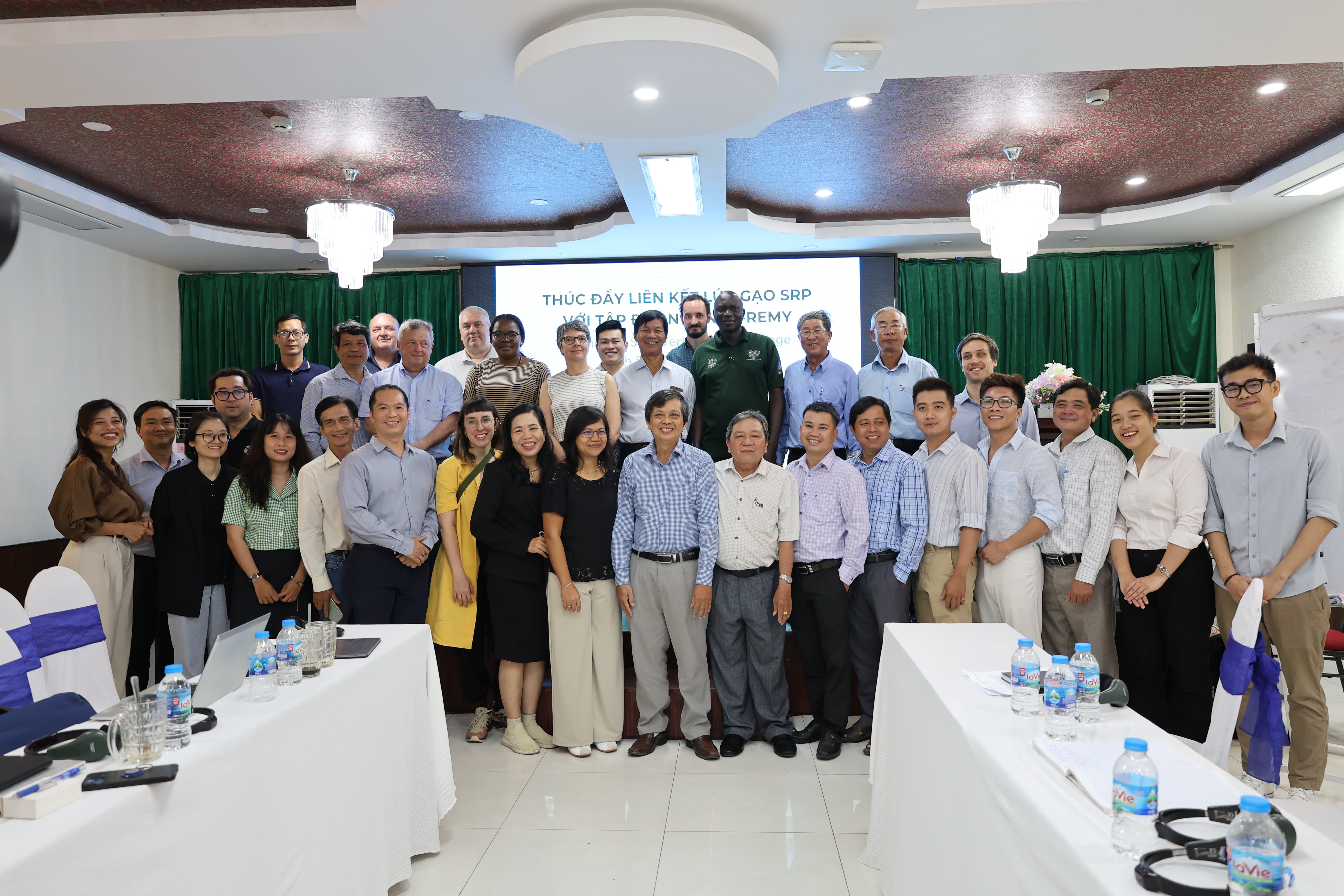
Vietnam's rice production is essential to its economy and food security, with the Mekong Delta serving as the country's main production area. However, rice farming faces major sustainability challenges, including high methane emissions, excessive water use, and environmental degradation. This project aims to promote sustainable rice farming by introducing climate-smart practices that are benchmarked against the Sustainable Rice Platform (SRP) standard and by facilitating fair value chains that reward farmers for making sustainable choices.
The Mekong Delta, known as Vietnam’s rice bowl, is both a source of pride and a pressure point. The Mekong Delta feeds the nation and fuels exports that have lifted millions out of poverty, reducing it to less than 6% and almost eliminating food insecurity. However, becoming the world’s third-largest rice exporter has put a strain on the region.
Irrigated rice fields account for nearly half of the agricultural sector’s greenhouse gas emissions, with methane production and excessive water usage pushing environmental limits. Although the quantity is high, with three cropping cycles per year, the quality lags behind. The overuse of fertilisers, pesticides and residue burning is depleting the soil, eroding biodiversity and trapping farmers in low-margin cycles.
Climate change exacerbates the threat: rising sea levels and saltwater intrusion could reduce crop yields by 15% by 2050. Meanwhile, farmers face high production costs and little support to change course. In order to fulfil its COP26 commitment, Vietnam has set itself the ambitious target of producing one million hectares of low-emission, high-quality rice by 2030.
Large-scale, consolidated production zones that bring farmers together to adopt climate-smart practices and meet international standards are crucial steps towards achieving this goal, as are efforts to boost the value and competitiveness of Vietnamese rice on the global market. There is a race to build supply chains that reward farmers fairly while scaling up a sustainable model robust enough to secure both livelihoods and the land.
To tackle these challenges, we must look beyond the paddies and rethink the entire system involved in growing, trading and consuming rice. Funded by FICAP (Flanders International Climate Action Programme), the project takes an integrated approach: scaling up climate-smart farming, measuring impact with innovative tools to substantiate sustainability claims, and establishing value-chain incentives that reward farmers for adopting sustainable practices. At its core lies the Sustainable Rice Platform (SRP) standard: a framework linking sustainable cultivation methods with stronger livelihoods and greater climate resilience.
Specifically, the project focuses on three main objectives:
Rikolto will provide guidance, training, technical assistance, and coaching to rice farmers, wrench farmers and government officials. Capacity building initiatives will follow the Sustainable Rice Platform (SRP) standard with emphasis on efficient water management and responsible use of chemical inputs. This initiative includes the implementation of demonstration plots illustrating practical applications of sustainable rice cultivation. Cooperatives will also gain the capacity to deliver bespoke services to their members, and SRP verification will ensure that their progress is recognised.
By connecting farmers with domestic and international markets, the project enables SRP-certified rice and its by-products, such as starches, flours and proteins, to enter commercial value chains. The Belgian company BENEO has committed to paying a premium price for sustainable rice, creating an export model that opens doors to international buyers and sets an example of more responsible business practices. At the same time, Rikolto and its partners are working to strengthen domestic demand and foster inclusive trade relations.

“What inspires us most about joining this supply chain is the opportunity to work directly with farmers. We know that farmers will invest in sustainable production when they clearly see the benefits. Fortunately, Rikolto's SRP initiatives have delivered tangible and convincing results over the years – and that's why we are fully confident in joining this initiative.”
Using CarbonFarm’s satellite monitoring and digital logbooks, the project can measure emissions and water usage throughout the supply chain. This provides agribusinesses with the data they need to make 'low-emission' claims. As well as helping Vietnam to advance towards its net-zero target for 2050, this model sets a precedent for tackling scope 3 (= all indirect emissions of greenhouse gases resulting from a company's activities, which come from sources the company does not own or directly control) emissions in global food supply chains.

On 1 April 2025, Rikolto and the Rural Development Sub-Department under the Department of Agriculture and Environment of Dong Thap Province co-hosted the event “Promoting SRP-Verified Rice Linkage with BENEO-Remy N.V.” in Cao Lanh City. During the event this three-party cooperation model was presented.

The project is funded by the Flanders International Climate Action Programme.